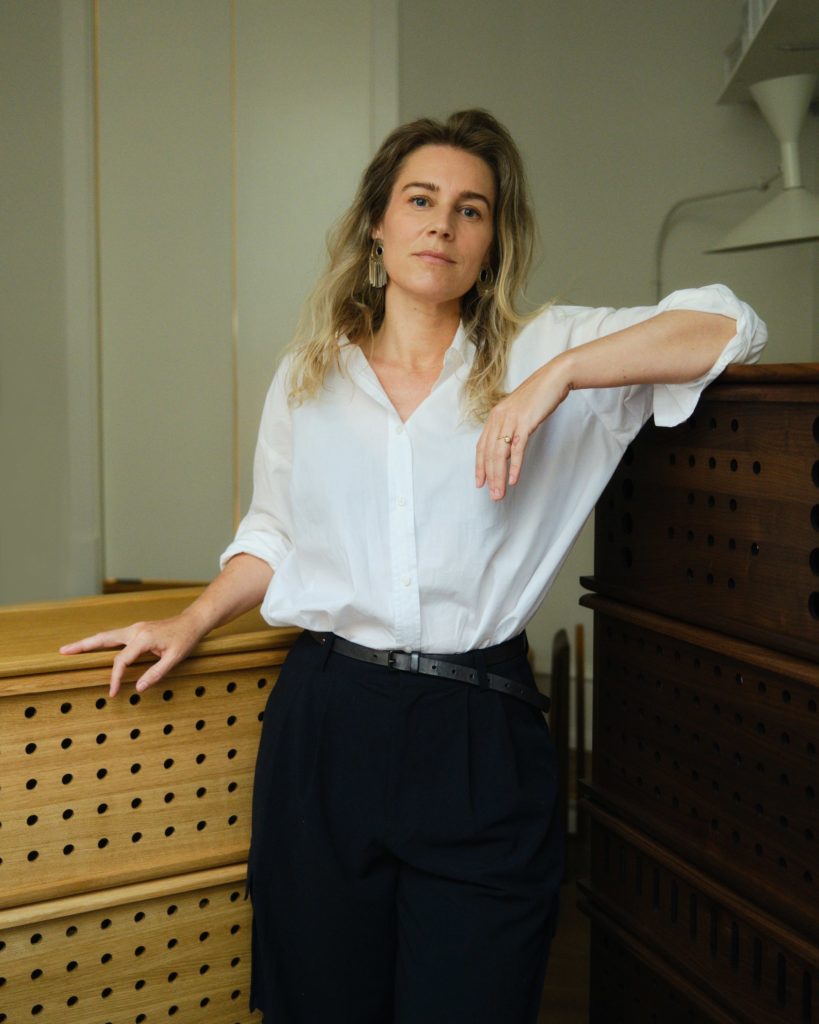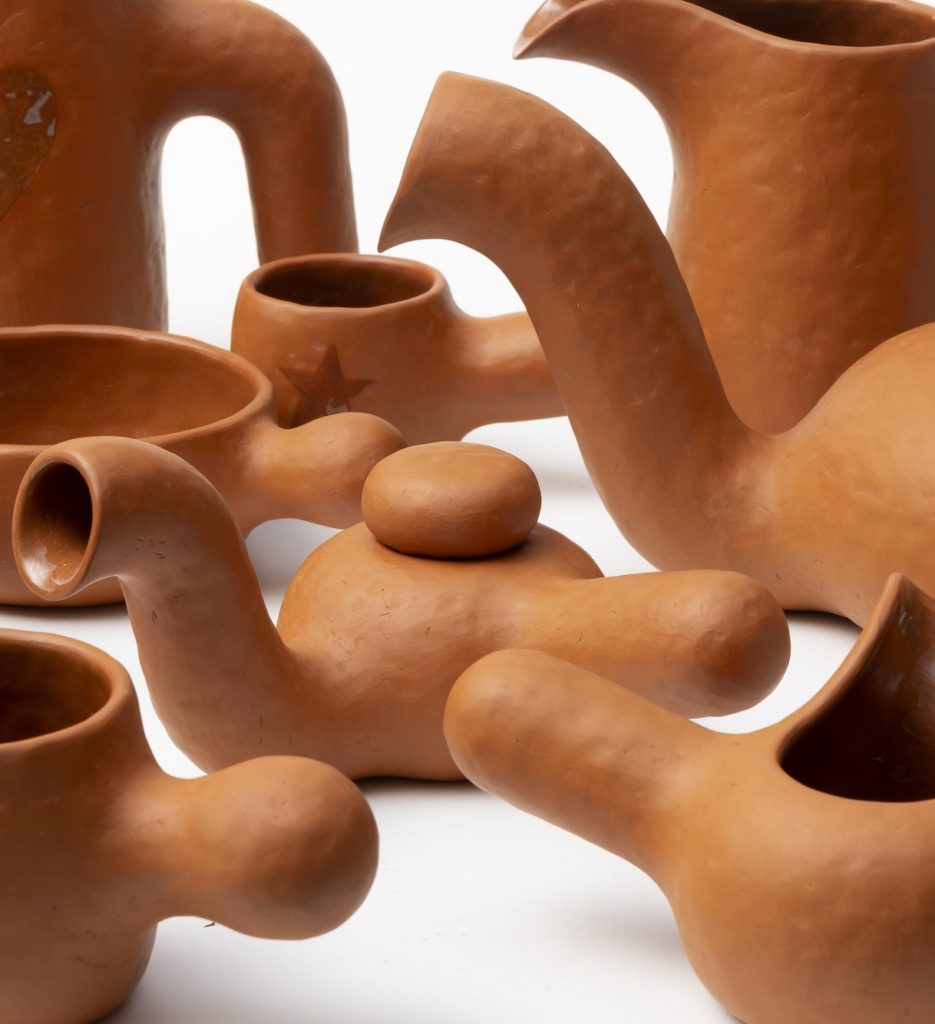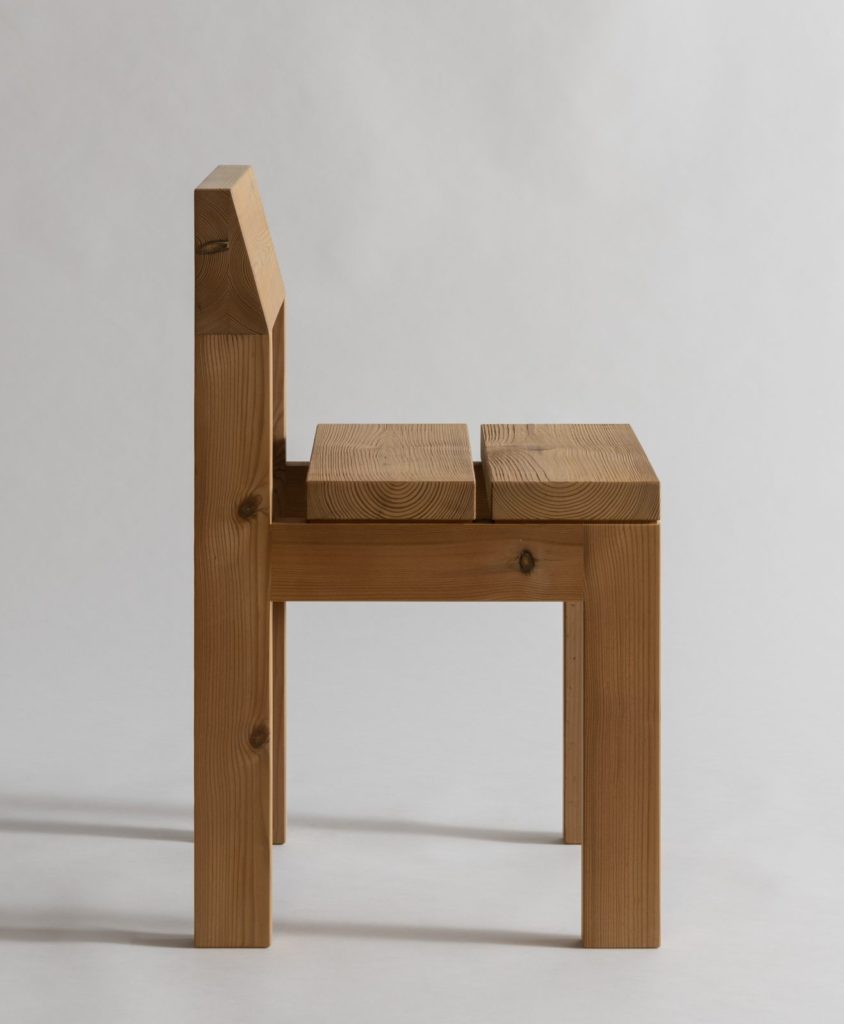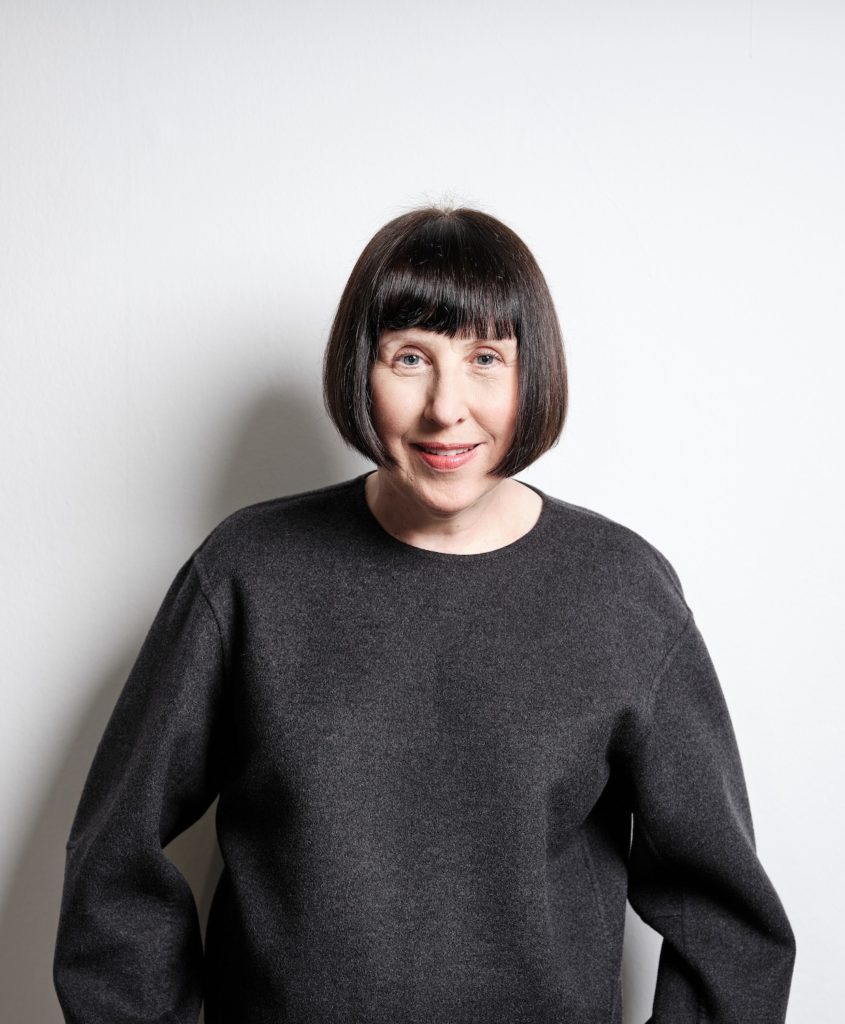Julius Værnes Iversen of TABLEAU on how design can positively affect mental health
Julius Værnes Iversen, Creative Director and Founder of TABLEAU, is member of The Mindcraft Project’s Curatorial Advisory Board in 2022.
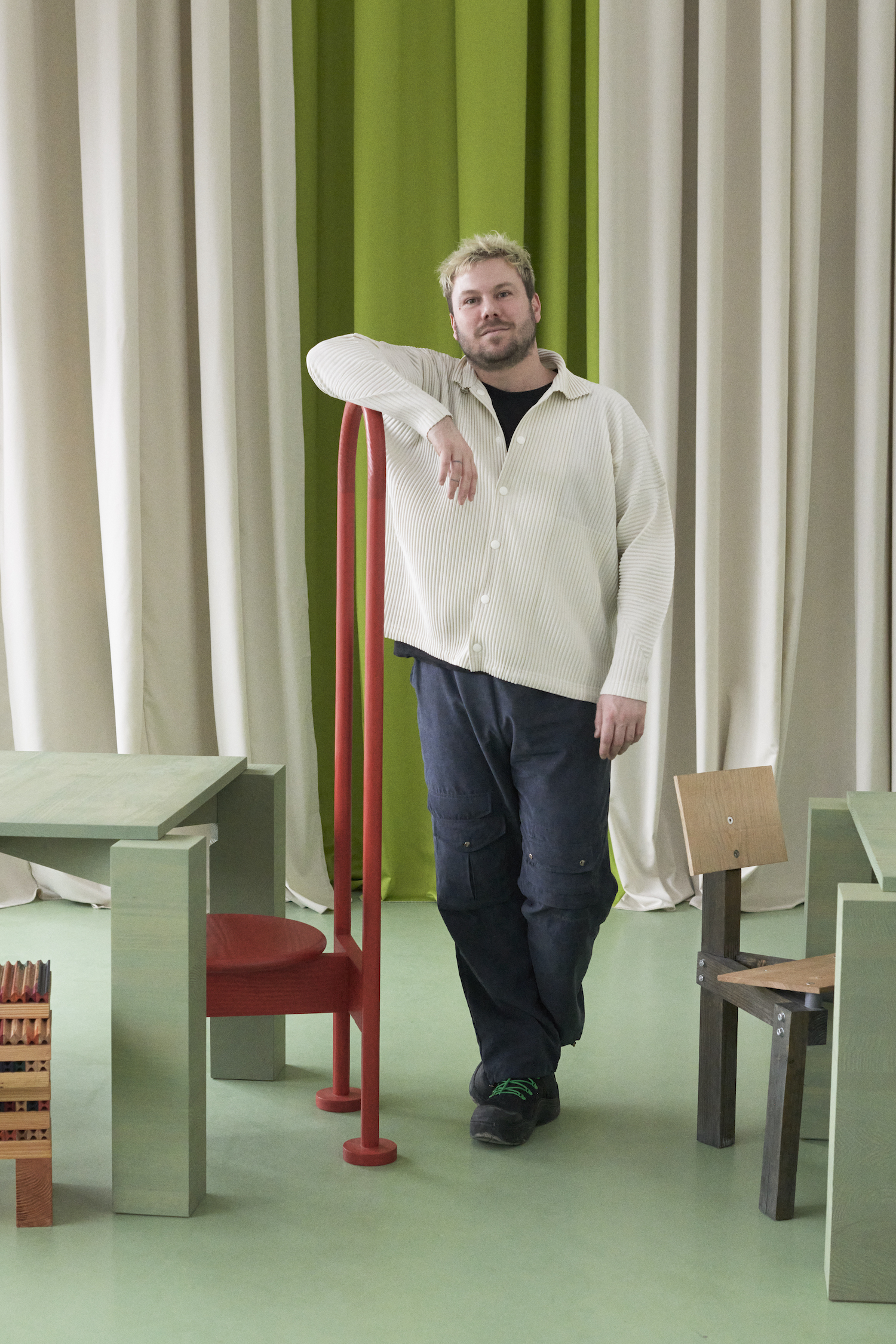
What started out as a platform to showcase the beauty of flowers in a more minimalist and artistic setting, TABLEAU has quickly evolved into a multi-disciplinary creative studio and platform that is rejuvenating the Danish design scene. Let by their creative director and founder Julius Værnes Iversen, their aesthetic language unites the delicate nature of florals with an almost anarchic, industrial way of designing and producing – opening up each project and space to like-minded creatives that approach their craft the same way a florist would; first and foremost with their hands.
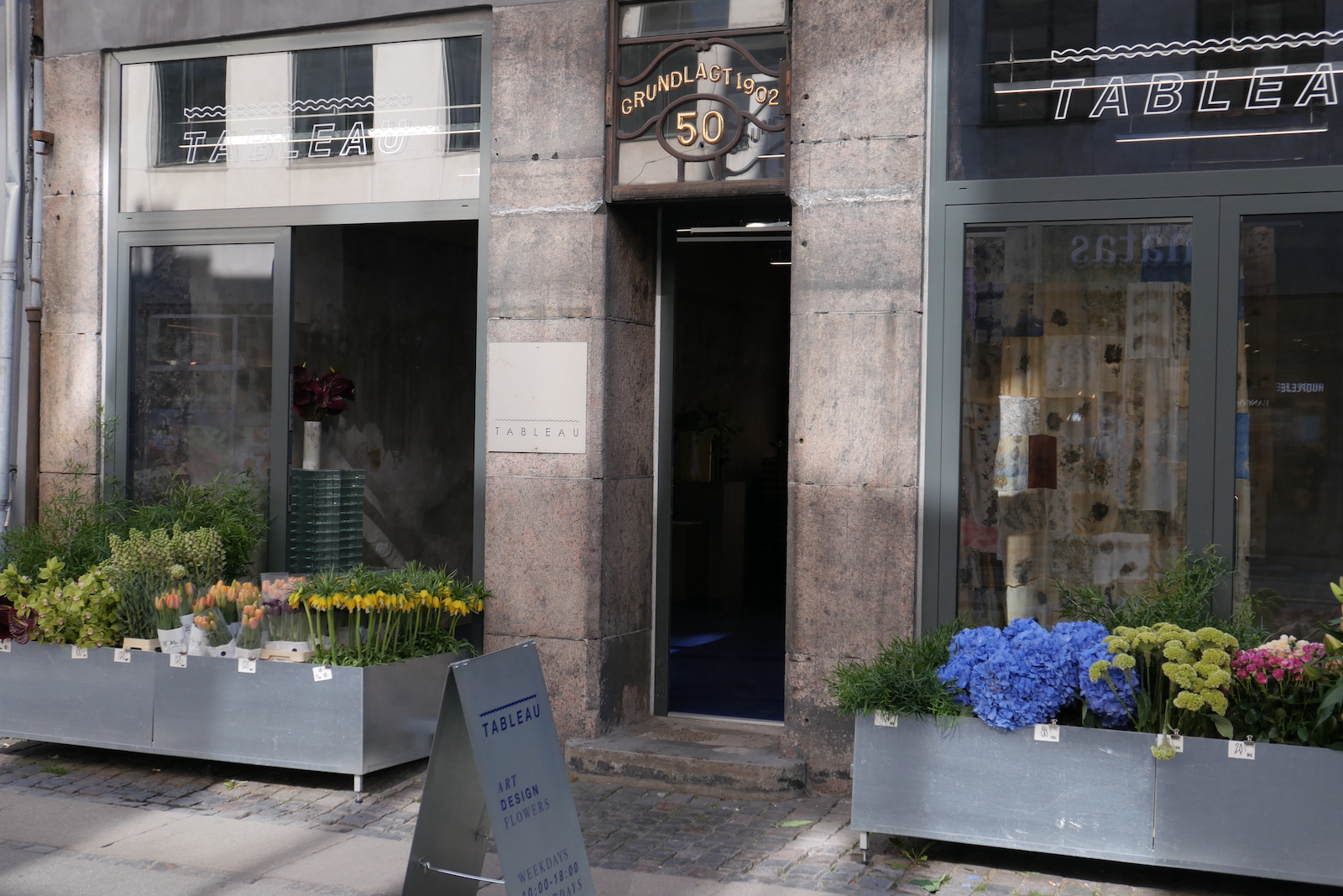
Having inherited the family business form his father; the Bjarne Blomster chain of Copenhagen flower stores, and armed with a passion for collectible art and design, Julius set out to combine his two loves in a way that spoke to his generation. With the help of long-time friend David Thulstrup, the two set about creating the spatial design for TABLEAU in 2018. While the original goal of the space was to bring an artistic expression to the way in which flowers are displayed and understood, the space also provided an escape of sorts for Julius.
“I used to work in our regular flower stores, and it was always a problem in that it was quite hectic within these spaces. You always need a lot of people within a small space and I was dealing with a lot of anxiety – being in this cramped environment… I opened up this quite large space (in the form of TABLEAU) where flowers could be showcased one by one in order to give space for each individual flower,” says Julius Værnes Iversen.
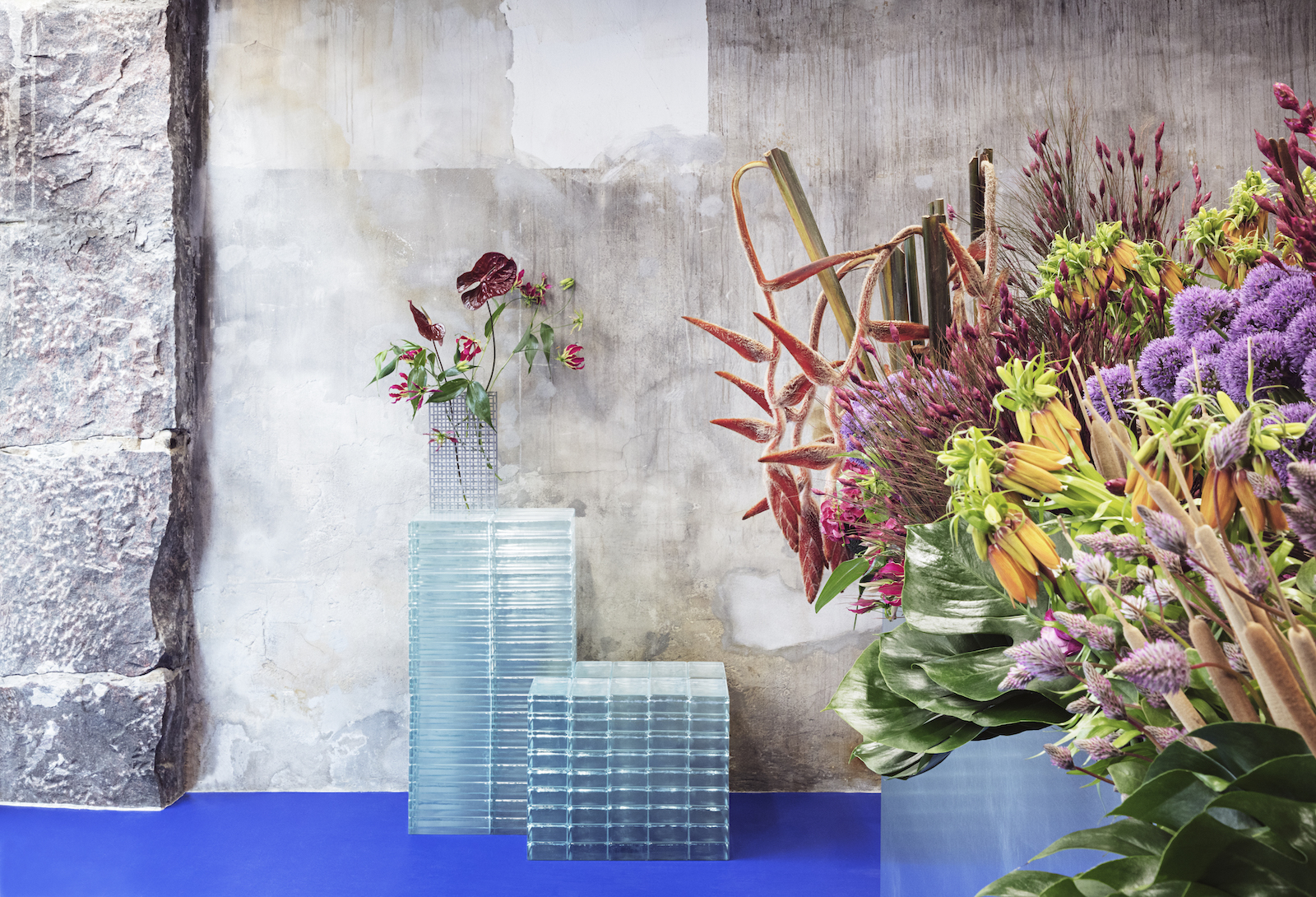
This initial collaboration with Studio David Thulstrup allowed TABLEAU to become its own beacon within the Copenhagen creative scene. As more attention grew on this industrial space with its now trademark blue floor, so too did the ambitious nature of the exhibitions, collaborations and projects that Julius and his growing team took on. With a number of creative pursuits since that time, it was Julius’ initial realization in the power of spatial and object design as a tool for healing that has led to a number of TABLEAU’s more wide-reaching projects. The project that best demonstrates this would be the spatial design for Post Service in 2021.
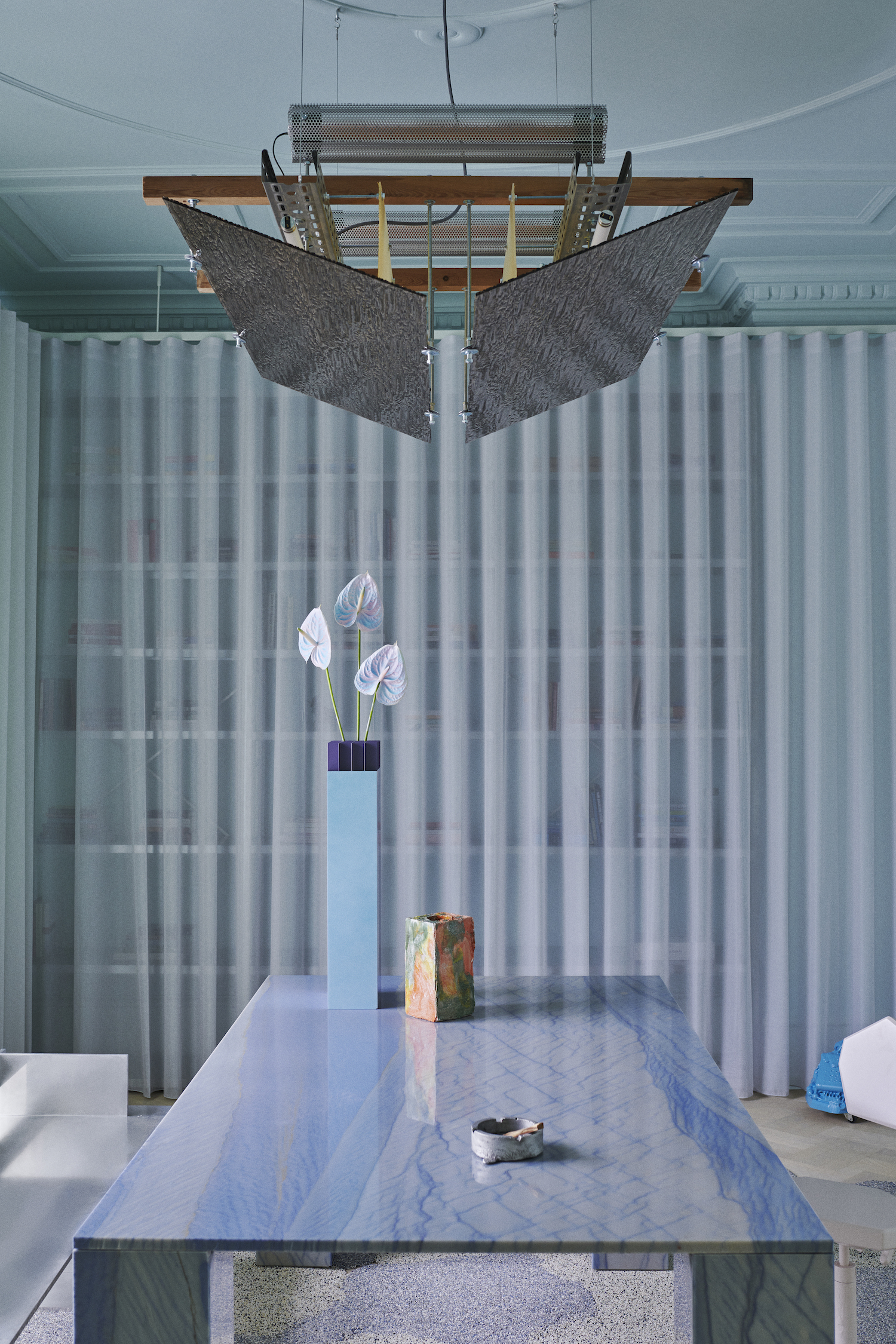
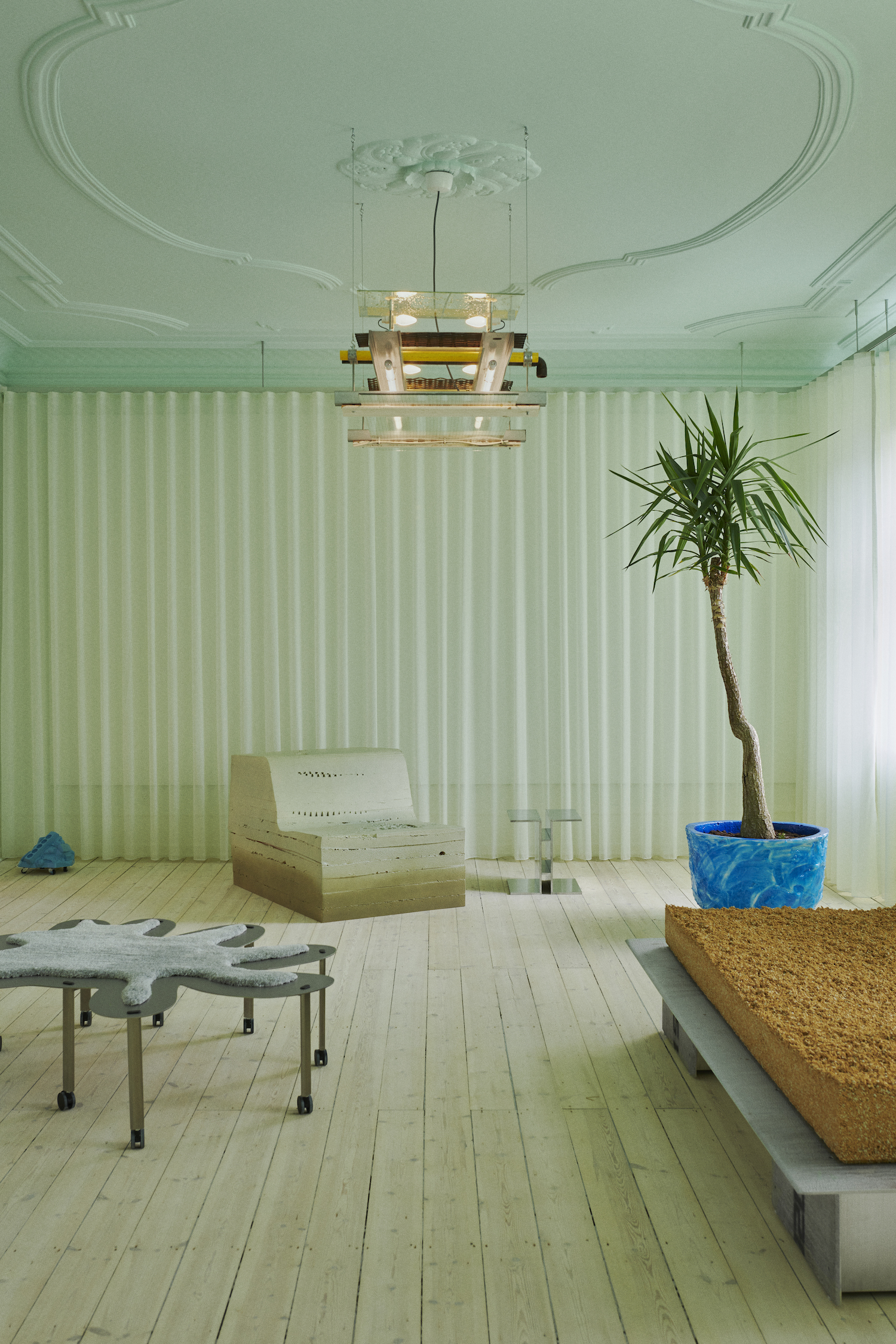
Approached by the mental healthcare practitioner Xanthippi de Vito to curate a home for her practice, TABLEAU set about creating a number of spaces that form Post Service – from therapeutic environments to saunas, nutrition and relaxation rooms, all with design at their core. The collaboration combined Xanthippi’s scientific studies into colour therapy and how materiality can improve mental health, with TABLEAU’s collaborative approach to design. Working with a slew of designers and artists who work inherently with materiality at their core, the result is a range of spaces that draw in the senses – the smell of florals, the carefully curated colours of each space, the tactility of each object. Rather than these spaces and objects being a proclamation of how design can positively affect mental health, the resulting environments are a continuous study unto themselves – as Julius details;
“We created one space called revelation – a therapy room in which each object is seating. We approached a number of designers to create a chair or seating object from different tactile materials. These objects in a way allow Xanthippi to observe where people sit, and why they are attracted to each material – in order to better understand how these materials make different individuals feel. One object – for instance, is a beanbag made entirely out of cotton fringes, which supports your entire body. People with anxiety can sit and touch all of the fringes, helping them to calm down and feel at ease within the space.”
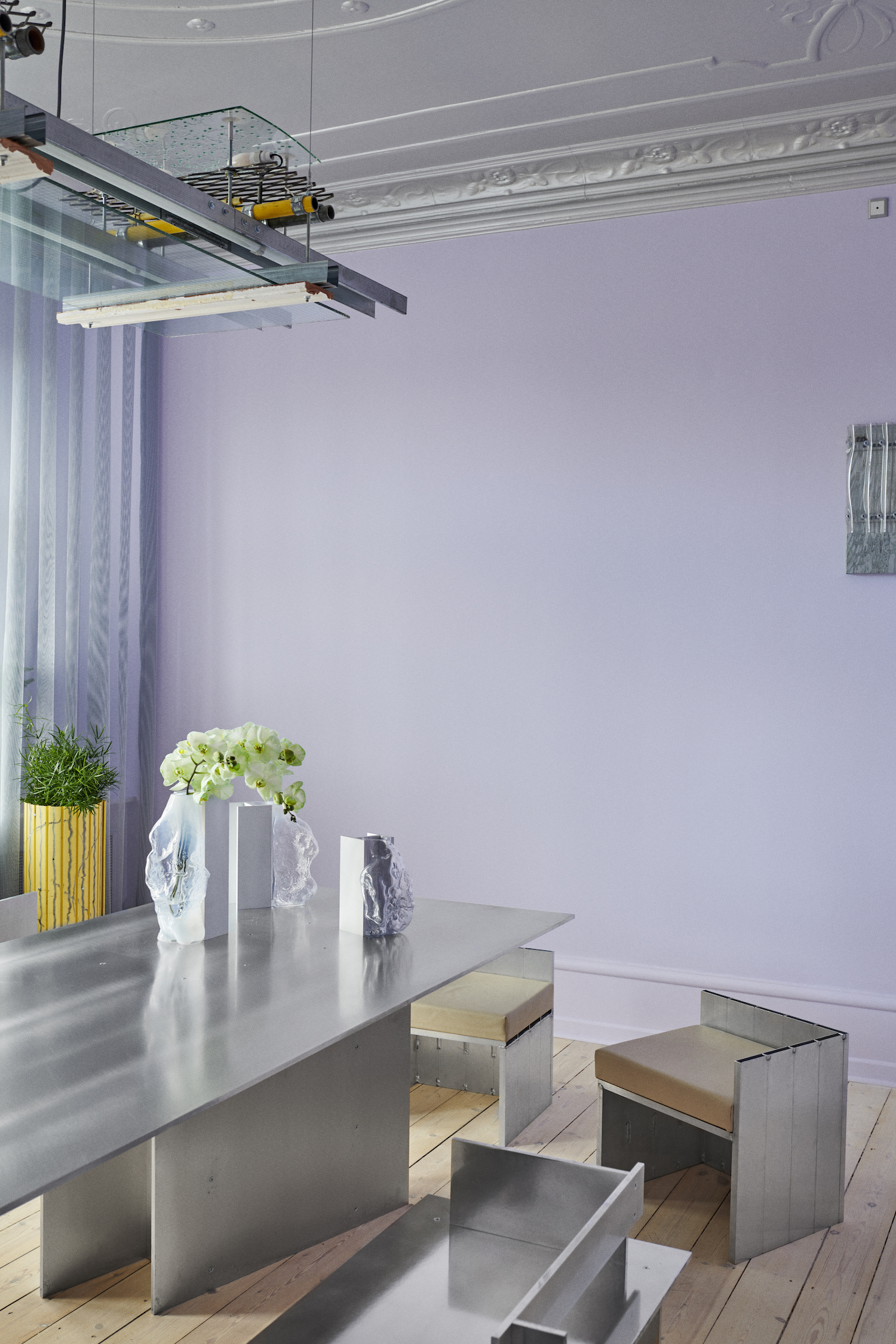
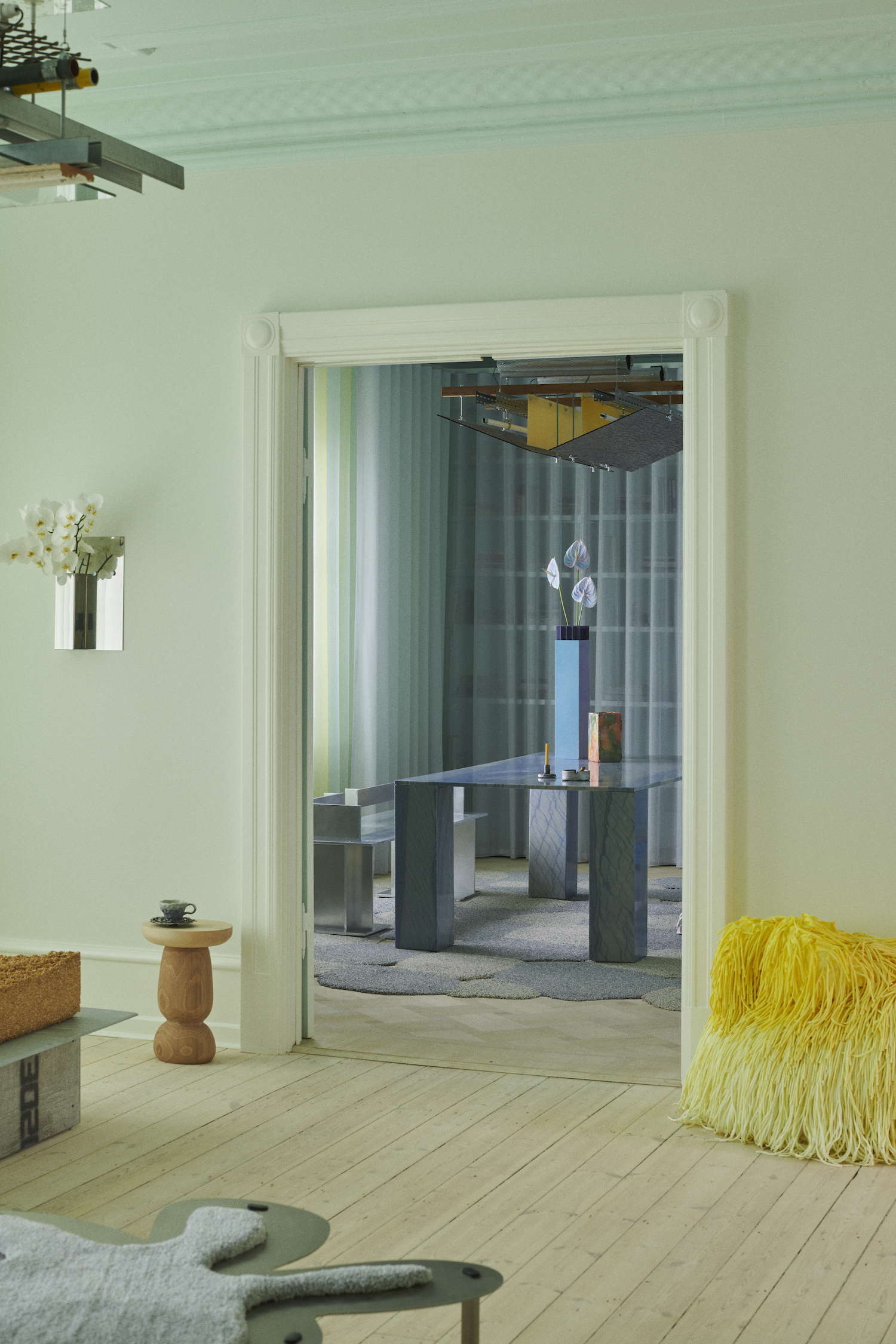
The success of their collaboration has allowed Julius and Xanthippi to continue to explore the relationship between art, design and mental health – paving the way for both parties to explore ideas that are increasing relevant within contemporary society. As part of Salone del Mobile in June, TABLEAU and Post Service will present ‘Confessions’ within Alcova – an exhibition area in Milan that will allow them room to highlight the subject of male mental health and toxic masculinity. Working alongside 14-15 male artists, each will create an art or design piece that expresses their own interpretation of confession – along with a piece of sound art. The exhibition aims to promote dialogue within a group of people that often shy away from expressing themselves.
“We have only asked male artists and designers to participate, which is a delicate thing to do. But we did this in order to create awareness about the fact that male mental health is not often talked about compared to general mental health issues. It is quite a tactile narrative, but one we believe in,” says Julius.
